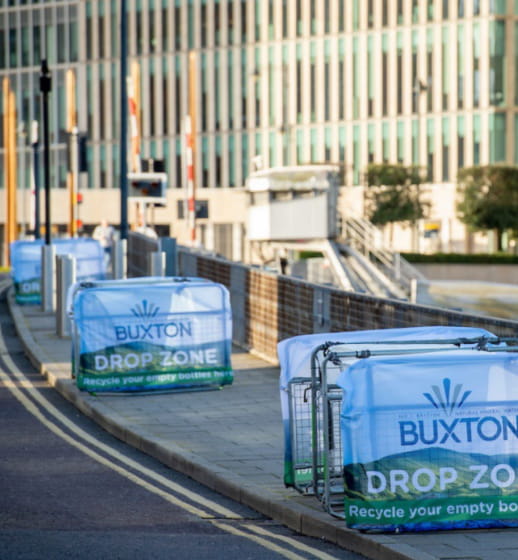Wider work at London Marathon Events
Reporting
In 2020 we launched our first-ever environmental impact report, Leaving the Right Impression, which set out the waste, emissions and products produced and used across all our events, and at our head office and warehouse in 2019.
All our annual environmental impact reports including our latest iteration are shown below:
Wider focus areas
We've split our focus across four key impact areas; waste, emissions, product and supply chain (add icons for each element).
Here are just a few of the things we achieved in 2020 across each of these areas across all our events; for full information check out our latest environmental impact report:
Waste
- Introduced bottles made of 100 per cent recycled and recyclable materials
- Prevented thousands of already purchased medals and T-shirts from going to waste by using them for our virtual events
- Donated more than 8,000 items of clothing to charitable causes
Emissions
- Switched to 100 per cent renewable energy at our head office and warehouse
- Introduced electric vehicles
- Planted more than 1,000 trees to help balance 2020 emissions from our generators, event vehicles and staff and elite athlete travel
- Introduced lower emission generators using HVO (Hydrotreated Vegetable Oil) fuel
Product
- Introduced kit bags made from sustainable sugarcane that have a lower carbon footprint
- Continue to provide Lucozade Sport Pods and compostable cups
- Reduced packaging on finisher T-shirts
Supply chain
- Introduced a responsible procurement toolkit
- Incorporated sustainability considerations into our terms and conditions
- Chaired a procurement working group with other mass participation event organisers
We also recognise the importance of collective action and have joined the UN Sports for Climate Action Framework, working with other sports organisers across the globe to take climate action. In addition we work closely with our fellow Abbott World Marathon Major partners and other UK mass participation sports organisations to share knowledge and learnings. We are excited about what we and our partners have achieved, but know there is still much more to do, and this work will continue long into the future.

